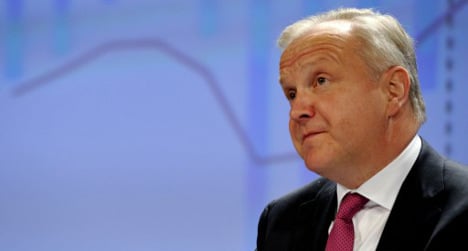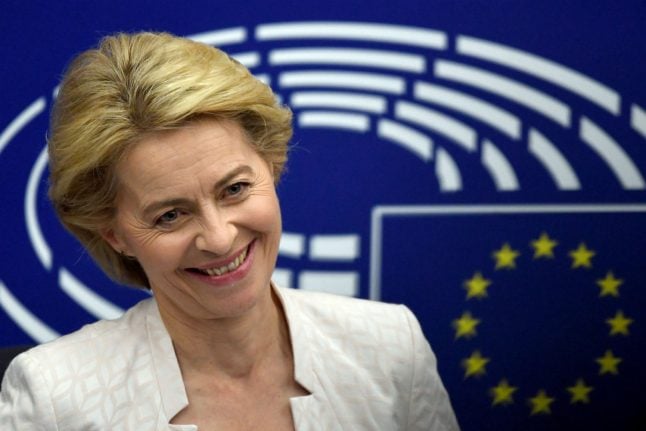European Commissioner Olli Rehn raised ire among Spain's unions, employer groups and political parties with a blog piece he published on Wednesday.
In the blog entry, the Finn appeared to give his support to an International Monetary Fund (IMF) model which would see Spain slashing wages by 10 percent to trigger economic growth and tackle unemployment in the country.
But a senior source at the European Commission has told The Local the Vice President's comments have been misinterpreted.
Rehn's "intention was to encourage a wider discussion around the issues regarding the economy in Spain". the European Commission source said.
That source was also keen to stress that the commissioner "was not making any new, prescriptive recommendations for Spain".
Those prescriptive measures were contained instead in the Commission's Country-specific Recommendations, the source said, adding that the recommendations had also been accepted by Spain.
That document advises Spain to bring its budget deficit below 3 percent of GDP by 2016 through "expenditure restraint" and "revenue-increasing" measures.
The European Commission also said the Vice President's blog, which cited the examples of Ireland and Latvia, was about "encouraging all political and social stakeholders in Spain to look into other experiences in Europe with an open mind".
Rehn was not saying Spain should follow Ireland and Latvia's lead, but that the country should consider other experiences when determining its "policy mix".
The Commission's comments to The Local come in the wake of an angry response to Rehn's blog piece.
Fernando Lezcan, Secretary for Organization and Communications from the general workers union the CCOO, said Rehn's statements were "completely unacceptable" both because the IMF proposal wouldn't help Spain emerge from the crisis and for the suffering the plan would cause.
Meanwhile Elena Valenciano, second-in-command with Spain's opposition socialist PSOE party likened Rehn's support for the IMF plan to a "poisoned dart", saying "salary cuts and tax rises had made Spaniards far poorer".
"There are millions of workers (in Spain) who earn in a month what Rehn spends on two dinners," said the PSOE Vice Secretary.
The European Commissioner — also the European Commissioner for Economic and Monetary Affairs and the Euro — earns just under €23,000 a month.
This is equal to the average annual salary in Spain, also slightly below €23,000 a year, Spain's stats office the INE said in late June.



 Please whitelist us to continue reading.
Please whitelist us to continue reading.
Member comments